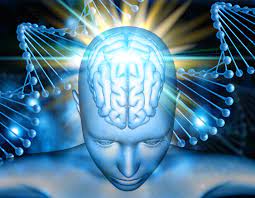We spend a third of our lives sleeping. It is a statement that seems exaggerated, but it is true. Sleep is one of the most important biological functions of all animal species. It is an unlearned condition in which you enter a state of suspension of sensory functions and voluntary movements. But why do we sleep?
Although the answer is not entirely clear, studies have shed some light on the subject. During sleep, the processes of energy recharge, cell repair or elimination of toxins are favored, and learning and long-term memory are strengthened. In addition to the obvious rest of the body and mind.
Sleep is essential for health and well-being. The continued lack of sleep has been linked to pathologies such as hypertension, heart problems, obesity, mental illness, memory problems or a weakened immune system. In fact, sleeping less than 6 hours a day reduces our life expectancy by 13%. Besides that sleep deprivation increases the risk of accidents.
Genetics is a good candidate to explain the sleep process. Despite the fact that the mechanisms that regulate this function are not well described, it is estimated that the genetic component can determine up to 45% of the usual duration of sleep, making it a highly heritable trait. Among the many genes that influence sleep pattern, the PAX8 gene stands out, a thyroid-specific transcription factor, related to an increase in sleep duration.
The relationship between genetics and sleep pattern is a topic of great interest. Therefore, with the tellmeGen test it is possible to learn more about your genetics and sleep pattern.
Why do we sleep?
Sleep is a universal biological function and is present in all animal species. It is a fundamental physiological need, like eating or breathing. However, it is not known exactly why we sleep.
Various theories have been proposed over the years, but none of them are completely satisfactory. Some of the more common theories include the idea that sleep is necessary for the repair and maintenance of the body, the conservation of energy, the consolidation of memory, the elimination of toxic waste in the brain, and the regulation of the state of mind. cheer up.
During sleep, the body reduces muscle activity and breathing becomes slower and more regular. Blood pressure also drops, and heart rate slows compared to waking states. The brain also undergoes significant changes during sleep, suggesting that sleep is essential for proper brain function.
In general, sleep seems to be an integral part of how our body and mind work. Although it is not known exactly why we sleep, it is clear that sleep is necessary for our health and well-being.
What happens if we don't sleep properly?
Lack of sleep can negatively affect cognitive ability and physical performance, which can be of particular concern in situations that require high concentration or quick response, such as at work or behind the wheel. In addition, lack of sleep can also increase the risk of suffering accidents at work or traffic.
On the other hand, it is important to note that the quality of sleep is also a key factor. A person can sleep the recommended time, but if the sleep is not restful, they can experience the same negative effects as if they slept less hours. The quality of sleep can be affected by various factors, such as alcohol or caffeine consumption, stress, ambient temperature, or even the use of electronic devices before bed.
In addition to environmental factors, genetics also play a role in sleep regulation. Several genes have been identified that are associated with sleep duration, sleep phase, and sleep quality. For example, one study found that a variant of the DEC2 gene is linked to the ability to sleep less without suffering the negative effects of sleep deprivation. Other genetic variants have been linked to sleep disorders, such as sleep apnea or restless legs syndrome.
It is important to note that the influence of genetics on sleep is not absolute. Sleep habits and the environment also play an important role in sleep regulation. For example, a person with a genetic variant associated with sleep duration may sleep less if they have unhealthy sleep habits or are exposed to an environment that interferes with their sleep.
Therefore, although genetics is an important factor in sleep regulation, it is not the only factor. Adopting healthy sleep habits, such as maintaining a regular sleep schedule, avoiding alcohol and caffeine consumption before bed, and creating a suitable sleep environment, can improve sleep quality and reduce the risk of sleep-related health problems. lack of sleep.
In summary, sleep is an essential biological function that plays a key role in the health and well-being of all animal species, including humans. Although the influence of genetics on sleep regulation is important, it is not the only factor that determines the duration and quality of sleep. Adopting healthy sleep habits can improve sleep quality and reduce the risk of health problems related to lack of sleep.















